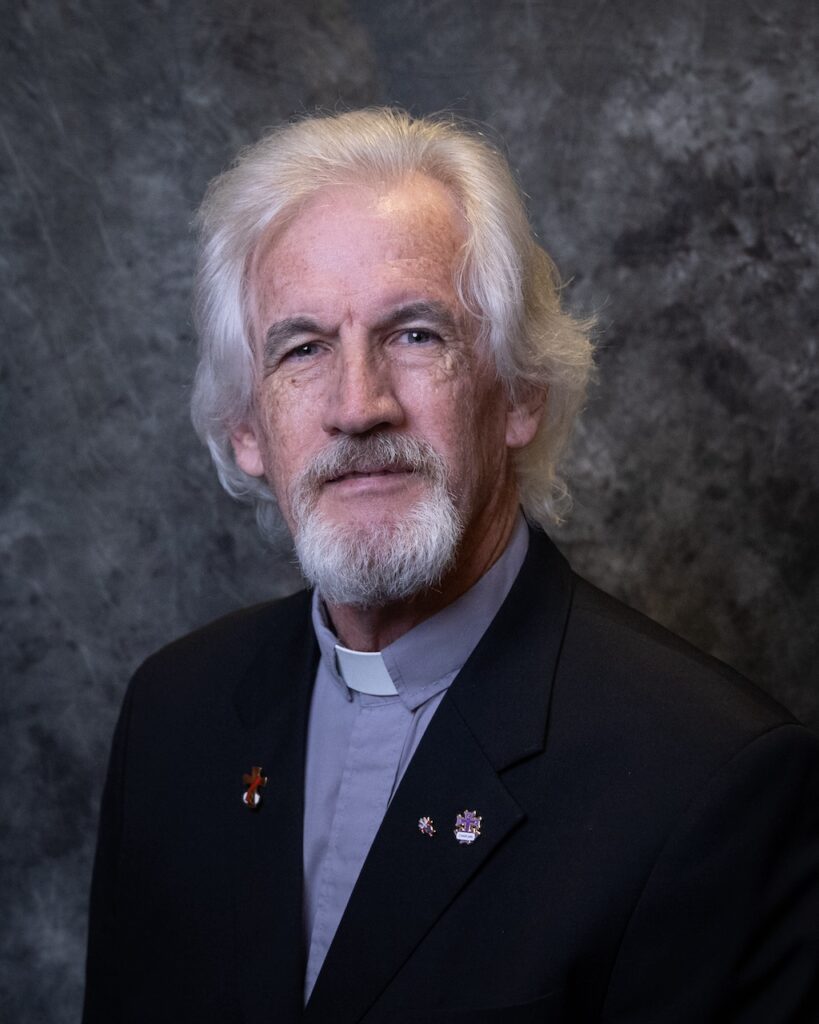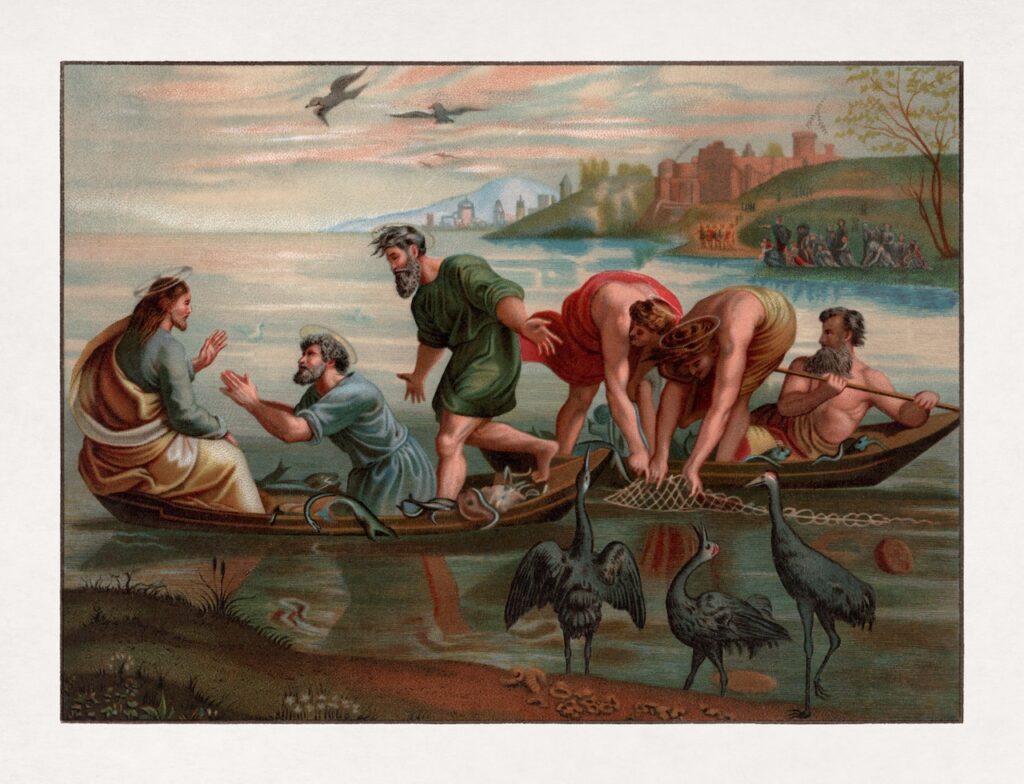Reflection on Mass readings for May 4 (Third Sunday of Easter)
Acts 5:27-32, 40b-41
Psalm 30:2, 4, 5-6,11-12, 13
Revelation 5:11-14
John 21:1-19
In the Sunday readings, the first reading from Acts of the Apostles tells how the apostles are called to task a second time for preaching in the name of Jesus. They had been imprisoned overnight for their continued preaching in the name of Jesus and were to be judged the following morning.
That night, an angel of God appeared and released them. The Jewish authorities found them preaching in the temple again and had brought them in to confront them. What is left out of this reading, Acts 5:33-39, is important.
The Jewish authorities sent the apostles out of the room so they could discuss the matter. One Jewish leader warns the others to have nothing to do with them. He says, “If this … endeavor is of human origin, it will destroy itself. But if it comes from God, you will not be able to destroy them” (Acts 5:38-39). Our reading picks up again, and we hear the apostles were brought back in, flogged, warned to stop preaching in the name of Jesus and then released. They left rejoicing.
Where did this boldness and certainty of purpose come from? If I were to read only the part of the Gospel about Jesus’ arrest, his subsequent trial and how his closest disciples scattered, deserted, and denied him, I would think it was over. This band of followers did not have a chance of success after the crucifixion. However, they subsequently experienced the resurrected Jesus and received the fullness of the Holy Spirit at Pentecost.
Through the power of the Holy Spirit, and the encounters with the risen Jesus, the apostles have become bold preachers of the Gospel. They willingly suffer for the sake of the Gospel. We will see throughout the early years of the Church that ten of the original apostles and St. Matthias, Judas’ replacement, suffer even death for the sake of the Gospel.
The results of this newfound boldness of the apostles can be found in the Book of Revelation. In the second reading, believers are “countless in number” and Revelation 5:13 says that ultimately “every creature in heaven and on earth” will glorify God.
John records in the Gospel reading that the apostles caught 153 large fish. That number seems to be an odd number recorded in the Gospel account. Nowhere else in Scripture is the number 153 found. My daughter, who is a math teacher, would say 153 is an odd number. Why 153?
Researching that number, I found it can mean two things: the number of known species of fish found in the Sea of Galilee at the time, popularized by St. Jerome, or the number of population groups or territories at the time. Symbolically, either explanation would indicate that the Church would be catholic. The word “catholic” that is used in our creeds is derived from the Greek word for universal.
If the Church is universal, then the mission of the Church is also universal and no one is excluded. Jesus continually asks us, as he asked Peter, “Do you love me?” Jesus asks that when we hear about the widow who has no one to help her or the person sleeping in the alleyway who is homeless.
The Spirit calls us, individually and as community. The Spirit will guide us, as it did the apostles, if we listen.
 Deacon Christopher Colville serves at Church of the Redeemer, Mechanicsville.
Deacon Christopher Colville serves at Church of the Redeemer, Mechanicsville.

